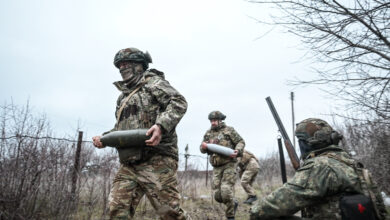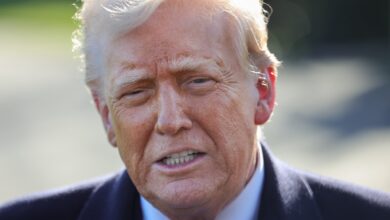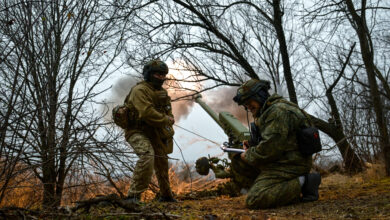Russia and Sudan hosted talks between some of the Central African Republic’s rival militias, CAR officials said on Wednesday, August 29, while documents showed the groups had signed a preliminary agreement to “converge towards peace.”
The meetings in the Sudanese capital Khartoum began on Monday, August 27 and unfolded in parallel to another effort to mediate between the armed groups and the government led by the African Union which is ongoing in Bouar in western CAR.
In their declaration of understanding signed on Tuesday, rival ex-Seleka and anti-Balaka armed groups said they had decided to “create a common framework for dialogue and action for a real and lasting peace” in the country.
CAR’s Minister of Communication and Media Ange-Maxime Kazagui in a government statement read on national radio said Russia and Sudan “took the step of holding a meeting in Khartoum with the heads of armed groups.”
The statement said the government “takes note of the declaration” signed in Khartoum but “supports the A.U.’s initative for peace and reconciliation.”
It reiterated that “peace, security, and the restoration of the authority of the state” are the government’s main objectives.
In July, Russia attempted to broker a meeting in Sudan to mediate between the government and the militias, but President Faustin-Archange Touadera’s office said the initiative was dropped as “the head of state believes there is no cause to engage in other processes while the African Union one is still under way.”
A country divided
Despite reserves of diamonds, gold, uranium, copper and iron, Central African Republic is one of the world’s poorest countries.
The majority-Christian country descended into violence following the 2013 ousting of President Francois Bozize in 2013 by the Seleka, a coalition of mainly Muslim rebel groups.
Seleka was officially disbanded within months, but many fighters refused to disarm, becoming known as ex-Seleka. Many others joined the mainly Christian anti-Balaka militia to fight the Seleka, leading to a spiral of violence between groups along both religious and ethnic lines.
By the end of 2014, the country was de facto partitioned – anti-Balaka in the southwest and ex-Seleka in the northeast.
Violence by both sides led to thousands of deaths. Nearly 700,000 people are displaced, 570,000 have fled the country and 2.5 million are in need of humanitarian aid, according to the United Nations.
Touadera’s weak government controls around a fifth of the country and relies heavily on the United Nations peacekeeping mission, Minusca, for support. The rest is controlled by at least 14 different militia groups who often fight each other for control of revenue from extortion, roadblocks or mineral resources.
Russia has twice attempted to mediate among the militias in the past two months, but without success.
Seven peace agreements have been signed in the CAR over the past six years but none has had a lasting effect.
Alors que l'initiative africaine a lieu actuellement à Bouar, les nairobistes (AB aile Mokom, FPRC, UPC, MPC et CNDS pour la Seleka) ont signé une "déclaration d'entente à #Khartoum sous impulsion de la Russie. #CARcrisis pic.twitter.com/id86Sz8A2o
— Edouard Dropsy (@EdouardDropsy) August 29, 2018
Ex-Seleka leaders sign declaration
Four ex-Seleka leaders signed the “declaration of understanding” in Khartoum on Tuesday: Noureddine Adam, leader of the Popular Front for the Rebirth of the Central African Republic (FPRC); Ali Darass leader of the Union for Peace in the Central African Republic (UPC); Mahamat Al-Khatim leader of the Patriotic Movement for the Central African Republic (MPC); and Abdoulaye Hissène, chairman of the FPRC’s National Defense and Security Council (FPRC-CNDS).
Both Hissène and Adam are currently under U.N. sanctions.
The fifth signatory was Maxime Mokom, who heads one of the largest anti-Balaka armed groups.
The rival ex-Seleka groups have been developing closer relations for months.
Since April, members of the FPRC have been regrouping in several towns in northeastern CAR, threatening to march on Bangui after Minusca and Central African forces launched the Operation Sukula “disarmament and arrest” action in the mainly Muslim PK5 neighborhood of the capital. Dozens of people were killed and scores injured in Bangui during the operation, and violence spiralled and spread, peaking on May 1, when at least 24 people were killed and around 170 were wounded in clashes in Bangui.
Members of the MPC and UPC also began regrouping in their strongholds in the country’s northeast. FPRC spokesperson Aboubakar Sidik Ali said on April 25 that discussions with the other ex-Seleka factions were ongoing and that the option to move on the capital remained “on the agenda.”
Rassemblement Centrafricain
The Khartoum document said the armed groups had decided to “create a common framework for dialogue and action for a real and lasting peace” in the country, a “national platform” which they called the Rassemblement Centrafricain – the Central African Rally.
The Rassemblement Centrafricain is “highly attached to the African Union initiative for peace and reconciliation” and is “resolutely committed” to ensuring the security of the population and the free movement of people and goods, and to safeguarding territorial integrity and sovereignty.
“The national platform of anti-Balaka and ex-Seleka armed groups agrees to converge towards peace,” and is committed to respecting human rights and enabling the free movement of national and international non-governmental organizations and the protection of their staff, the document said.
The groups invited the government, the African Union, the Economic Community of Central African States, the Central African Economic and Monetary Community, the European Union, France, Russia, and the international community to work together to hold, within a reasonable time, an African initiative for peace and reconciliation in the CAR.
It called on the government to “integrate the participation and active involvement” of Russia into the A.U. peace process, as well the countries that border CAR – Sudan, Cameroon, Chad, Congo-Brazzaville and the Democratic Republic of Congo.
#Centrafrique
: Début de la rencontre du panel de facilitateurs de l’Initiative africaine et des représentants des groupes armés #RCA, ce mardi 28 Août 2018, à #Bouar (Ouest) – appui #MINUSCA #CARcrisis pic.twitter.com/x6T4Xn8Q9Z
— MINUSCA (@UN_CAR) August 28, 2018
African Union peace initiative
Supported by the U.N. and other international partners, an African Union expert panel has been working to set up negotiations between the militias and the government since July 2017.
The panel is meeting with the militias in Bouar, where the armed groups are seeking to “harmonize” their demands before submitting a final “manifesto of demands” to the government, a point noted in the Khartoum declaration.
Last week media reported on a list of dozens of demands the militias were to present to the African Union expert panel. RJDH reported that the list includes 12 “non-negotiable” demands, including the development of a national dialogue that will lead to constitutional change and a means for the armed groups to transform into political organisations. They also want a review of military deals with Russia and South Africa, and a general amnesty for fighters.
Five human rights organizations united in opposition to an amnesty for the armed groups which they said “would be incompatible with the government’s duty to bring those responsible for grave international crimes to justice.”
“The armed groups at the negotiating table are suspected of having committed numerous grave abuses against civilians, such as murder, rape, sexual slavery, torture, looting, persecution and destruction of religious buildings,” they said.
Russia’s expanding role in CAR
The Khartoum initiative is the latest overt act in Russia’s deepening involvement in Central African Republic.
Five Russian military officers and 170 civilians act as advisors for FACa, CAR’s armed forces. They also provide close protection and security advice for President Touadera.
Further strengthening their ties, Russia and the Central African Republic signed a military cooperation agreement on August 21. Russia’s deputy defense minister said the pact was a “framework agreement” that includes the exchange of delegations, mutual visits and the education of FACa personnel in Russian military institutes.
The U.N. Security Council in January unanimously extended sanctions against CAR until January 31, 2019, but last year it was lifted to allow deliveries of Russian weapons for CAR’s armed forces.
However, Russia is not alone in supporting CAR’s military.
France, Belgium, China and the U.S. have also recently supplied equipment for CAR’s armed forces.
At a June meeting of the Security Council, France, the U.S. and the U.K. put a hold on a CAR request for approval of weapons shipments from China for its armed forces. The request was supported by the E.U. Training Mission in CAR and the U.N.’s Minusca mission.
In July, the E.U. extended its military training mission in CAR until 2020, pledging €25 million ($29 million) to help reform the country’s defense sector. Notably, the scope of the mission, known as the EUTM RCA, was also modified to give strategic advice to the president’s cabinet, interior ministry and police, as well as the military.
In June, the E.U.’s diplomatic chief Federica Mogherini proposed a new €10.5 billion ($12.4 billion) “peace facility” that could pay for military equipment, including lethal weaponry, for partner countries in crisis zones such as CAR and Africa’s Sahel region.
But in the most high-profile international incident in recent months, three Russian journalists were murdered near Sibut in late July. The journalists were in CAR to investigate Wagner, a shadowy Russian private military contractor group, and its possible relation to both government and armed groups.
CAR authorities and Russia have characterised the motive for the mysterious killings as robbery, but Kremlin critic Mikhail Khodorkovsky who funded the investigation has claimed this argument “does not stand up to scrutiny”.
With reporting from AFP












